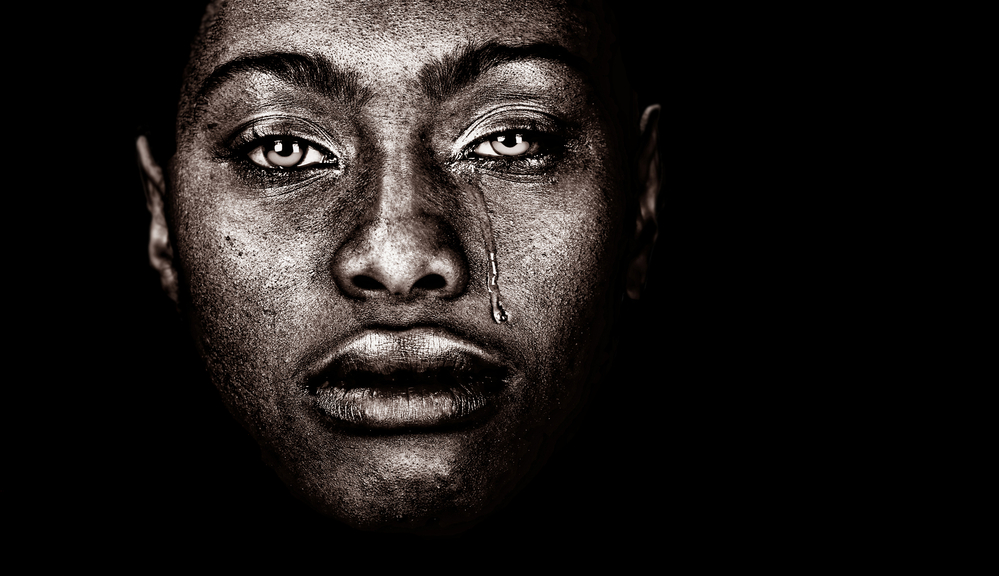I’ve been thinking.
And thinking.
And thinking.
And…thinking.
With so much going on in the world at once, I often find myself overwhelmed with thinking. Today, however, I am showing up to write about racism. The kind that is obvious, but especially the kind that is insidious. The kind that some white people don’t realize is present in their everyday experience (eh-hem…me).
I am not sure what sparked an uprising in me after the murder of George Floyd. After all, this isn’t the first time a Black person has died at the hands of police in a such an outwardly unjust and vile way. My husband and I watched transfixed when Gayle King announced an upcoming segment with a warning: “This footage is very hard to watch.” We saw the struggle, we saw the pleading, we saw the knee, we saw the expression of white power with zero regard for human life. And my heart broke.
The uprising in the public was disturbing; chaos, fire, more brutality. I do not subscribe to such behavior. I am a peaceful person. But I have not been vocal enough.
Over the years, I have studied my own inherent racism. I grew up in an Hispanic family (on my mom’s side) that, it seemed to me, did not want to own its Brown. When my parents divorced, my mom did not wish to change her name back to Garcia, ostensibly because it was easier to have the same last name as us kids. But was there something else? Mom also appeared embarrassed the few times I offered up her ability to speak Spanish to a store patron who needed help. Maybe it was because her Spanish wasn’t as good as it used to be; but was that really the issue?
More obvious was the time I broke up with my first boyfriend, and my then step dad said something like, “Well, that’s what you get for dating a Mexican.” I’ve never forgotten the total dissonance in that statement. My heart was breaking. What did race have to do with it?
To be clear: I find blaming to be completely useless, so that’s not what is happening here. I’m not assigning fault to either myself, my parents, my parents’ parents, or anybody else for that matter. However, even though it’s not our fault
It’s our absolute responsibility to show up against it.
I was not vocal enough.
A couple of years ago, I sat around a table with other professionals in a meeting about raising our cultural awareness. We all agreed to take the Harvard Implicit Bias test. I guarantee we were all shaken (or at least surprised) by our results. I suggested we have an authentic conversation about implicit bias. We were a group of therapists! Talking about this was necessary. Not one other therapist spoke up alongside me.
I was not vocal enough.
The truth is, I’m embarrassed by my lack of showing up. Living in a multicultural family, I am ashamed I have not asked more questions. Working alongside brilliant people of color, I have not gotten curious about their experiences enough to ask awkward questions (awkward on my part, because I don’t know enough).
I have not been vocal enough.
Recently I was asked, “Why can’t we just acknowledge that all lives matter?” This is my reply: All lives do matter, but that is not what we are talking about right now. I can’t say it more eloquently than Dr. Michael Lennox who notes in a recent Facebook post
“Black Lives Matter does not speak to the preciousness of all life. It speaks to the lack of agency of men and women in black bodies who can literally be killed because of the color of their skin.”
I’ve not been vocal enough about obvious racism, and I certainly haven’t been vocal enough about insidious racism. Enough. I’ve been thinking, thinking, thinking. It’s time to start doing, doing, doing. These are my immediate plans:
- Post this blog.
- Have a hard conversation about race with my kids (who are Asian with white parents)
- Support #blacklivesmatter all over social media.
- Be intentional about inviting Black people to be interviewed on my podcast.
- Begin reading Me and White Supremacy by Layla Saad and join in discussion with other readers.
- Check out every single resource in this blog post by Leonie Dawson one-by-friggin-one.
- Listen to podcasts about racism.
- Pay my education forward.
- Peacefully demonstrate.
- Ask awkward questions of friends, family, and colleagues.
- Keep showing up every single day.
- Be vocal.
And please, if you are reading this and have more recommendations for me, I’m all ears. Reply or send me a note: info@drmariarothenburger.com. Together we will end racism.
RECOMMENDATIONS RECEIVED THUS FAR:
- Watch the film 13th on YouTube or Netflix
- The Culture of Fear by Barry Glassner


I am loving the open discussions I am having with my teens and young adults. There is no judgement just pure conversation.
Thanks for your conversation and helping me to remind myself to be vocal
Xo
“There is no judgment, just pure conversation.” <--- now THAT is beautiful thing. <3
Well put mama. I’m all in with you. Change starts with us as adult so we can educate our selves and young people so racism and discrimination for that matter will not be part of their future and ours. I love you ❤️
Thank you, Babe. Love you back so much. We can be the change. <3